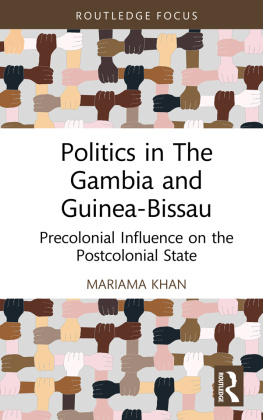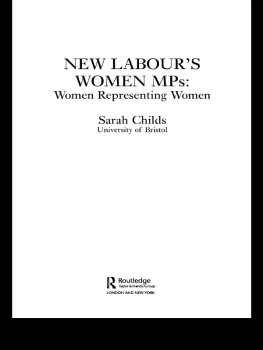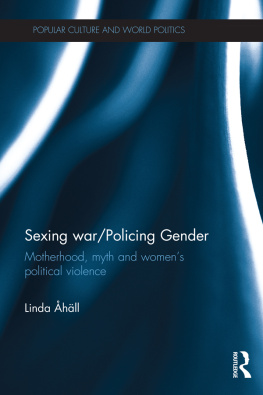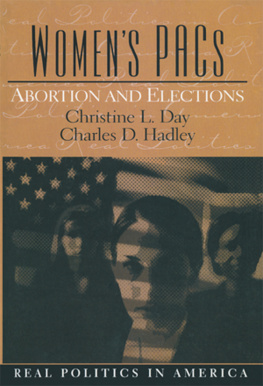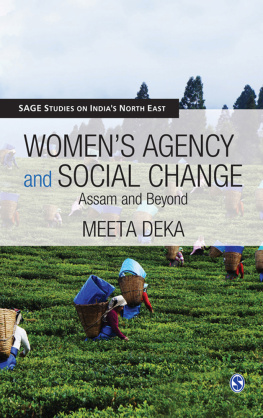
Women, Agency, and the State in Guinea
This book examines how women in Guinea articulate themselves politically within and outside institutional politics. It documents the everyday practices that local female actors adopt to deal with the continuous economic, political, and social insecurities that emerge in times of political transformations.
Carole Ammann argues that womens political articulations in Muslim Guinea do not primarily take place within womens associations or institutional politics such as political parties; but instead womens silent forms of politics manifest in their daily agency, that is, when they make a living, study, marry, meet friends, raise their children, and do household chores. The book also analyses the relationship between the female population and the local authorities, and discusses when and why womens claim making enjoys legitimacy in the eyes of other men and women, as well as representatives of traditional authorities and the local government.
Paying particular attention to intersectional perspectives, this book will be of interest to scholars of African studies, social anthropology, political anthropology, the anthropology of gender, urban anthropology, gender studies, and Islamic studies.
Carole Ammann is a Postdoctoral Researcher at the University of Amsterdam, the Netherlands.
Routledge Studies on Gender and Sexuality in Africa
1. The Tunisian Womens Rights Movement
From Nascent Activism to Influential Power-broking
Jane D. Tchaicha and Khdija Arfaoui
2. Disability and Sexuality in Zimbabwe
Voices from the Periphery
Christine Peta
3. Love, Sex and Teenage Sexual Cultures in South Africa
16 Turning 17
Deevia Bhana
4. African Women, ICT and Neoliberal Politics
The Challenge of Gendered Digital Divides to People-Centered Governance
Assata Zerai
5. Widow Inheritance and Contested Citizenship in Kenya
Building Nations
Awino Okech
6. Women, Agency, and the State in Guinea
Silent Politics
Carole Ammann
First published 2020
by Routledge
2 Park Square, Milton Park, Abingdon, Oxon OX14 4RN
and by Routledge
52 Vanderbilt Avenue, New York, NY 10017
Routledge is an imprint of the Taylor & Francis Group, an informa business
2020 Carole Ammann
The right of Carole Ammann to be identified as author of this work has been asserted by her in accordance with sections 77 and 78 of the Copyright, Designs and Patents Act 1988.
Trademark notice: Product or corporate names may be trademarks or registered trademarks, and are used only for identification and explanation without intent to infringe.
British Library Cataloguing-in-Publication Data
A catalogue record for this book is available from the British Library
Library of Congress Cataloging-in-Publication Data
Names: Ammann, Carole, author.
Title: Women, agency, and the state in Guinea : silent politics /Carole Ammann.
Identifiers: LCCN 2019049291 (print) | LCCN 2019049292 (ebook) |ISBN 9780367189594 (hardback) | ISBN 9780429199547 (ebook) |ISBN 9780429578663 (adobe pdf) | ISBN 9780429574443 (mobi) |ISBN 9780429576553 (epub)
Classification: LCC HQ1236.5.G92 A46 2020 (print) |LCC HQ1236.5.G92 (ebook) | DDC 305.42096652--dc23
LC record available at https://lccn.loc.gov/2019049291
LC ebook record available at https://lccn.loc.gov/2019049292
ISBN: 978-0-367-18959-4 (hbk)
ISBN: 978-0-429-19954-7 (ebk)
For Kaspar, Nyah, and Enna
One of the most beautiful privileges in doing anthropology is its social character, first and foremost during fieldwork. I owe a lot to many Guineans men and women, young and elderly who generously permitted me to gain insight into the joys and difficulties of their everyday life. The research participants have told me their stories and experiences, given me their points of view, patiently answered my many questions, and allowed me to spend time with them. Without them, this book would not have been possible. I especially thank the two research collaborators Djnabou Dram and Thierno Abdoul Sow who have done an incredible work. I would also like to express my immense gratitude to the Fofana family for their big-hearted hospitality, the delicious food, and their general contribution to my well-being while staying at their home.
I thank my friends for sharing adventures, sharing food and drinks, for dancing, playing games, watching soccer, discussing, and remaining silent: Bouah Sangar, Daouda Traor, Djnabou Dram, Kadiatou Diallo, the members of the association Kankan Ville Verte, Mamadou Tounkara, Mamy Traor, Mohamed Gbondouno, Sory Kourouma, Tenin Diawara, and Thierno Abdoul Sow. I also want to thank Amadou Doumbouya, Andrea Hodler, Chantal Zimmermann, Corinne Heim, Dominik Holl, Jay Straker, Katharina Zurcher, Laura Pestalozzi, Lucy Koechlin, Marion Bernet, Matthias Knecht, Michelle Engeler, Rahel Muller, and Sophia Vlksen for the discussions and the unforgettable Sundays at the river side.
Special thanks go to my PhD supervisors Till Frster and Dorothea Schulz. I would also like to thank my colleagues for the fruitful collaborations during joint writing projects. I am grateful for the comments on presentations, proposals, draft chapters, articles, and the general support I received throughout this research from people at the Institute of Social Anthropology at the University of Basel and beyond: Adas Sanogo, Alexander Vorbrugg, Andrea Buhl, Andrea Kaiser-Grolimund, Andrea Kaufmann, Anna Christen, Balz Alter, Barbara Heer, Bobby Luthra Sinha, Brigit Obrist, Filomena Mazumbar, Fiona Siegenthaler, Franziska Jenni, Frederik Unseld, Jana Gerold, Jennifer Giroux, Johannes Knierzinger, Kathrin Heitz-Tokpa, Kerstin Bauer, Lotte Nielsen, Lucy Koechlin, Mamane Amadou, Maren Larsen, Mohamed Saliou Camara, Michelle Engeler, Miriam Giroux, Piet van Euwijk, Rita Kesselring, Sabine Schultz, Sandra Burri, Sandra Staudacher, Silke Oldenburg, Susann Ludwig, Till Frster, and Tina Lou Tra. Special thanks goes to Gernot Biersack for the language editing.
This research was made possible thanks to grants from several research foundations: Firstly, the grant by the Swiss National Science Foundation (SNSF) for the project The Work of State Imageries: How Imageries of Governance and the State Constitute Everyday Practice in Conflict Affected West Africa (No. 124528) led by Till Fster, which this research has been part of for fifteen months; secondly, the one-year scholarship by the Research Fund Junior Researchers from the University of Basel; thirdly, a fifteen-month scholarship by the SNSF Marie Heim-Vgtlin Grant. I was able to conduct extended fieldwork in Guinea thanks to the Freiwillige Akademische Gesellschaft, and the Josef und Olga Tomcsik-Stiftung. Special thanks also goes to Susan Thieme and Marina Richter, as well as my colleagues at the Institute of Geography at the University of Bern who hosted me during the revision process.
I especially thank Regina, Ruedi, and Nomi Ammann for being proud of me and for being there. In particular, I want to thank Kaspar Padel for being at my side during this long journey. And thank you Nyah and Enna for giving me endless joy and energy. You are simply wonderful.
This book has been published with the support of the Swiss National Science Foundation.


